Don't miss our holiday offer - up to 50% OFF!
Brolizum 100 Mg (Pembrolizumab)
Brolizum 100 mg is a pharmaceutical formulation of pembrolizumab, which is a humanized monoclonal antibody engineered to enhance the body’s immune response against certain cancers. Pembrolizumab belongs to the drug class of immune checkpoint inhibitors, and it particularly targets the pathway of programmed death receptor-1 (PD-1). By blocking the PD-1 receptor on T-cells, Brolizum helps restore the immune system’s ability to recognize and destroy malignant cells.
Manufactured to international standards of quality and efficacy, Brolizum 100 mg injection is indicated for use in various types of advanced or metastatic cancers as part of immunotherapeutic regimens either as a monotherapy or in combination with other anticancer agents. Each vial of Brolizum contains 100 mg of pembrolizumab as the active ingredient, formulated as a sterile, preservative-free solution intended for intravenous infusion after dilution.
Mechanism of Action
The active ingredient in Brolizum, pembrolizumab, works by targeting the PD-1 receptor, a cell surface protein that is expressed on activated T-lymphocytes. Under normal conditions, PD-1 binds to its ligands-PD-L1 and PD-L2-presented by either tumor cells or antigen-presenting cells. This interaction transduces an inhibitory signal that dampens immune activity and enables cancer cells to evade immune detection.
Pembrolizumab releases the “brakes” from the immune system by binding to the PD-1 receptor and blocking its interaction with its ligands, PD-L1 and PD-L2. This reactivation of T-cell function enables the immune system to target and kill tumor cells more effectively. This forms the basis of the wide-spectrum success seen with pembrolizumab as an immuno-oncology therapy.
Indications and Uses
Indications for Brolizum 100 mg (Pembrolizumab) include treatment for several cancers, including but not limited to:
Melanoma: Advanced or unresectable melanoma, as first-line or subsequent therapy.
NSCLC: In patients with tumors that express PD-L1 and who have no EGFR or ALK genomic tumor aberrations.
Head and Neck Squamous Cell Carcinoma (HNSCC): As monotherapy or in combination regimens.
cHL: Especially for the relapsed or refractory form of the disease.
Urothelial Carcinoma (Bladder Cancer): In patients with disease progression during or following platinum-containing chemotherapy.
MSI-H or dMMR Tumors: Tumors of any solid tumor type that are MSI-H or dMMR, across various tissue types.
Cervical, Gastric, and Hepatocellular Carcinomas: In selected cases where PD-L1 expression is confirmed.
Dosage and Administration
Administration of brolizumab is intravenous, over approximately 30 minutes, by healthcare professionals in a setting where monitoring by trained personnel is readily available. The recommended dosing schedule is either every three weeks for 200 mg or every six weeks for 400 mg, per indication and at the discretion of the treating clinician. The drug should be diluted in 0.9% sodium chloride or 5% dextrose solution before administration. Treatment continues until disease progression, unacceptable toxicity, or completion of the prescribed duration as recommended by oncology guidelines.
Side Effects and Precautions
Immune-modulating therapy like Brolizum may lead to irAEs that may affect the healthy organs and tissues. The most common adverse events include fatigue, rash, itching, diarrhea, cough, reduced appetite, and joint pain. Less frequent, but serious, immune-mediated events affecting the lungs (pneumonitis), colon (colitis), liver (hepatitis), endocrine glands (thyroiditis, hypophysitis, diabetes mellitus), and kidneys (nephritis) have also been reported.
Patients should be monitored carefully for any signs of immune-related toxicity, and treatment may need to be temporarily suspended or permanently discontinued along with corticosteroid therapy in the case of significant adverse events.
Storage and Handling
Brolizum 100 mg should be stored in a refrigerator at 2°C to 8°C (36°F to 46°F) in its original carton, and must be protected from light. The solution should not be frozen or shaken. After dilution, the solution should be used within the time recommended by the manufacturer or discarded according to institutional procedures.
Conclusion
Brolizumab 100 mg is a revolutionary drug in cancer treatment, leveraging the body’s immune system to fight against malignancies. Its role in durable responses and the survival benefit it offers to patients with advanced cancers have gained it a place as one of the most important advances in modern oncology. It, however, must be carefully used, with selected patients, closely monitored, and by healthcare professionals experienced in the management of immune-mediated adverse reactions.


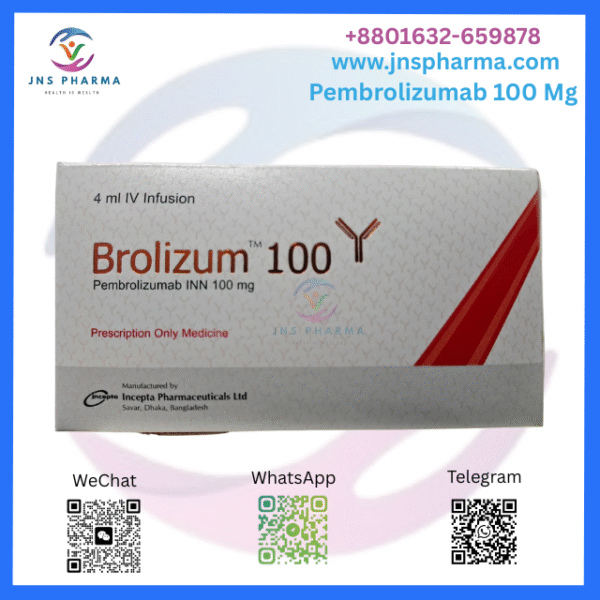
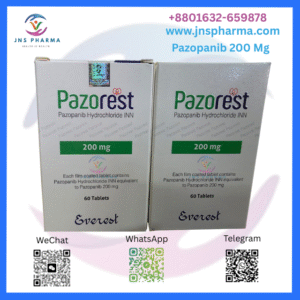
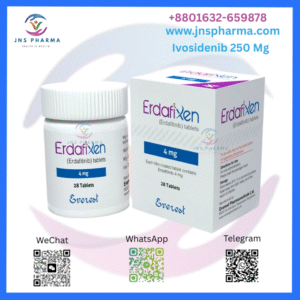
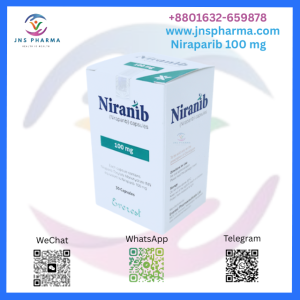
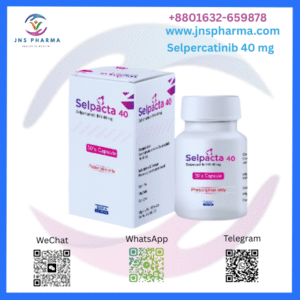
Reviews
There are no reviews yet.